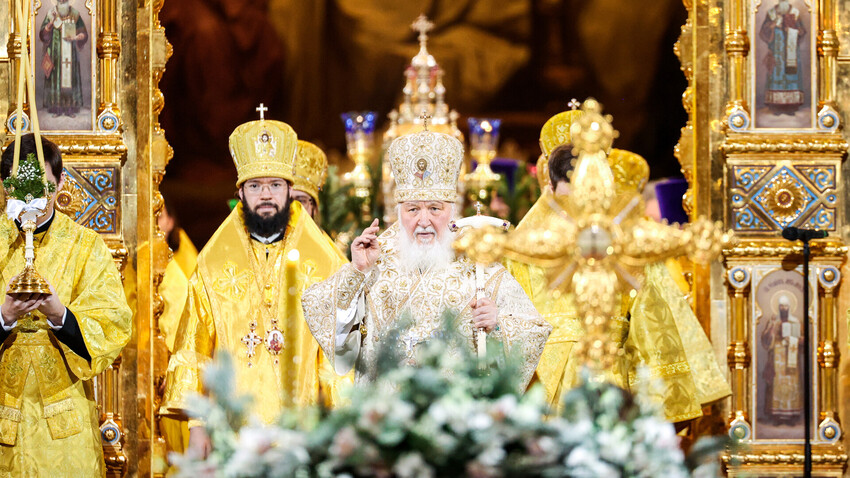
Patriarch Kirill of Moscow and All Russia pictured during the night Christmas service at the Cathedral of Christ the Savior
Sergei Bobylev/TASS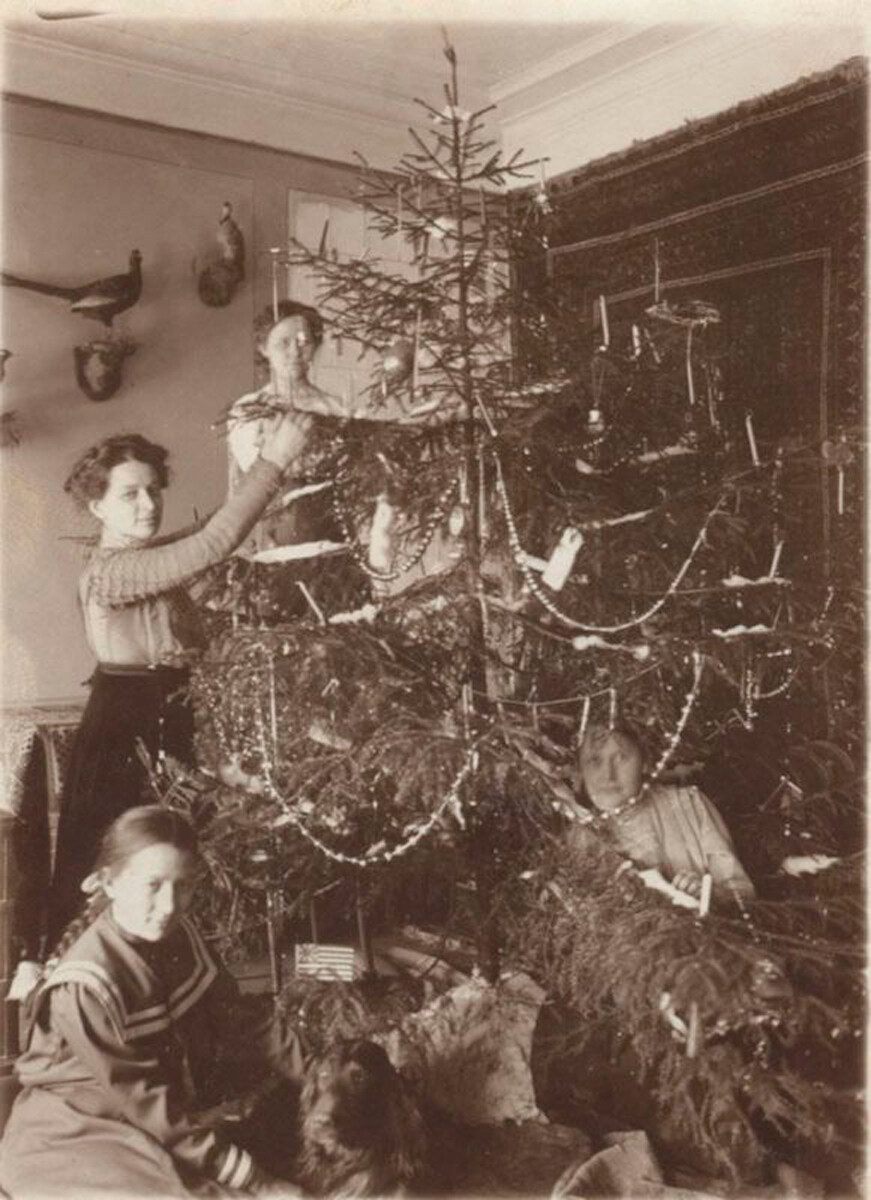
Christmas tree decoration in a merchant's house of merchant Zvorykin, 1910
Murom Historical and Art Museum/Russia in photoUntil the 1917 Revolution, the Russian Empire lived in accordance with the Julian calendar, which ‘lagged’ 13 days behind the Gregorian calendar to which the West adhered. So, this meant that Russia’s December 25th didn’t coincide with December 25th in the West. Hence, although Christmas was celebrated in Russia on the same date, in reality it came 13 days later than in the West.
In 1918, the new Soviet state also transitioned to the Gregorian calendar, and, in accordance with the ‘new style’, all the dates shifted 13 days forward. It turned out that Orthodox Christmas fell on January 7th. But the New Year was celebrated in Russia at the same time as in the rest of the world, so now it came before Christmas.
This actually even suited Soviet authorities, which had already begun their campaign against religion. So, the New Year celebration became the first and the most important holiday, which preceded Christmas.
By the way, Christmas is celebrated on January 7th not only in Russia, but also in some other Orthodox Churches, namely the Greek Orthodox Church of Jerusalem, the Georgian Orthodox Church, and the Serbian Orthodox Church.
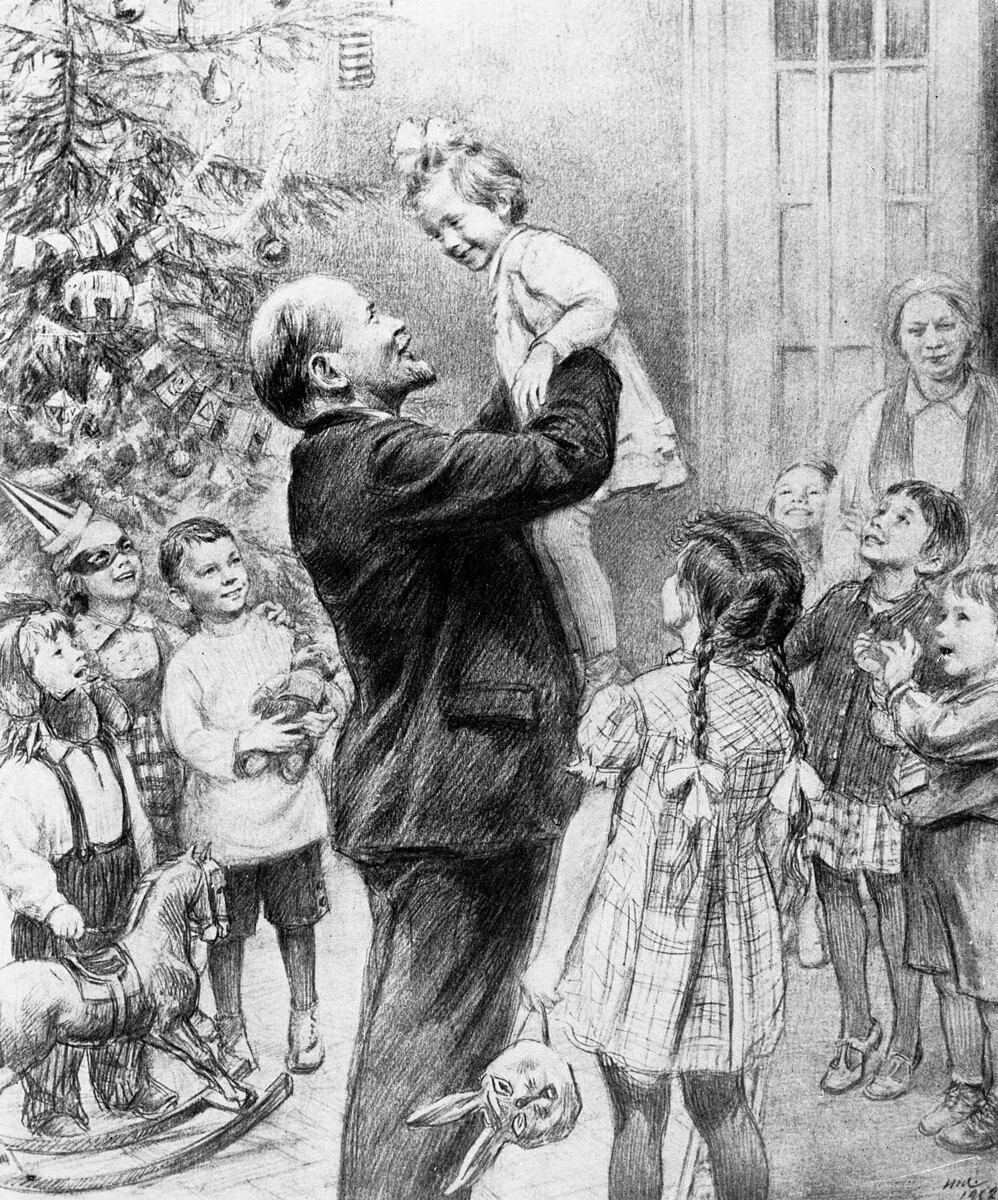
Nikolai Zhukov. New Year tree in Sokolniki, 1952. Reproduction
SputnikThe tradition to celebrate Christmas was so deeply rooted in the Russian consciousness that Soviet authorities had to put a lot of effort into uprooting it. At first, the Bolsheviks preferred to turn a blind eye to such celebrations, and many people continued clandestinely to arrange Christmas festivities for children.
In 1929, Stalin decided to intensify the anti-religious struggle, and he forbade any Christmas celebrations and even abolished it as a day off work, making January 7th a regular working day. Those who continued to celebrate Christmas secretly risked their jobs and even their freedom. And yet, even in GULAGs people managed to arrange quiet Christmas celebrations and prepare hand-made gifts and cards.
In order to give children a magical time of joyous celebration, the tradition of the Christmas tree was transferred to the newly-created New Year’s festival, which was marked in the USSR with large-scale merrymaking and the giving of presents. Officially, Christmas was once again allowed only after the collapse of the USSR, but secret religious services were still a part of the few surviving churches.
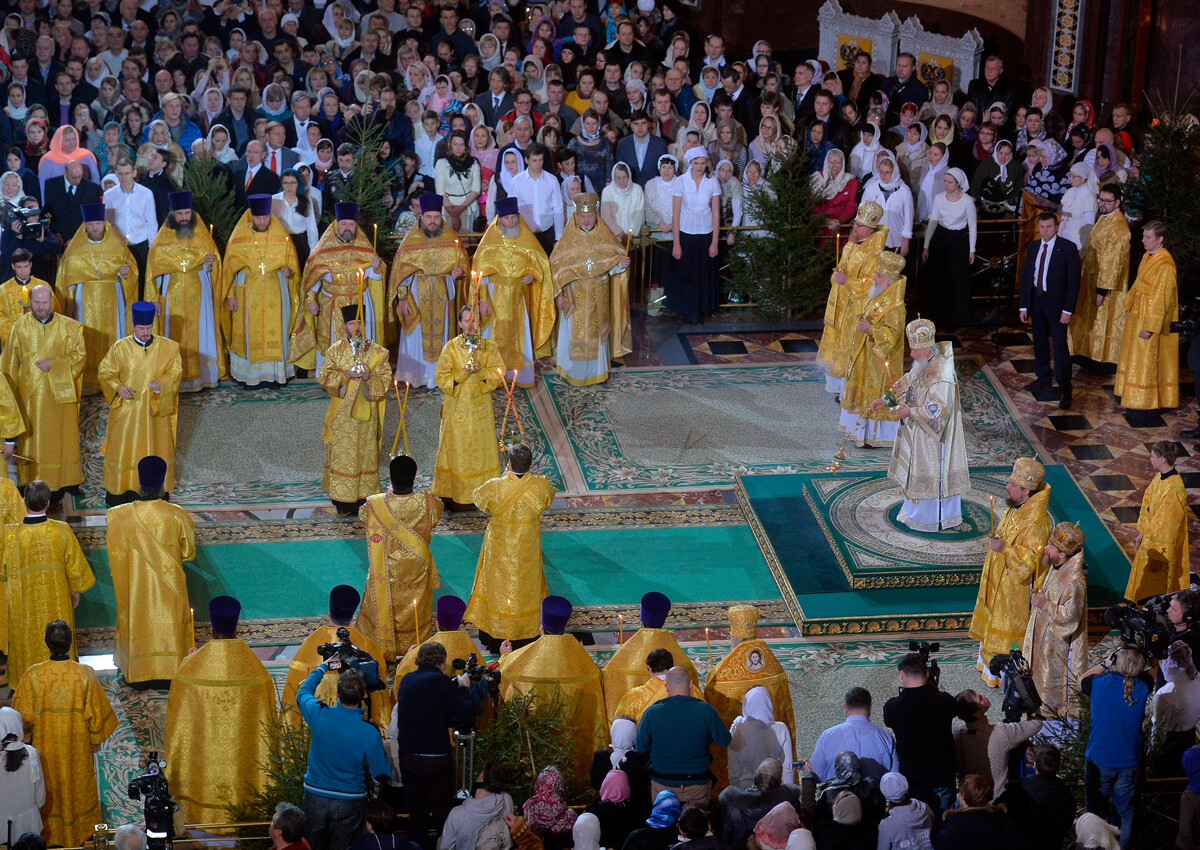
Christmas service in Moscow
Vladimir Astapkovich/SputnikFor Catholics, Christmas is the main religious holiday; at least it’s celebrated on a much grander scale and by a lot more people. A different tradition, however, emerged in Russian Orthodoxy, where Easter is considered the main religious holiday instead: Resurrection Sunday.
Priests explain the primacy of Easter by citing a quote from St. Paul the Apostle: “If there is no resurrection of the dead, then not even Christ has been raised. And if Christ has not been raised, our preaching is useless and so is your faith.”
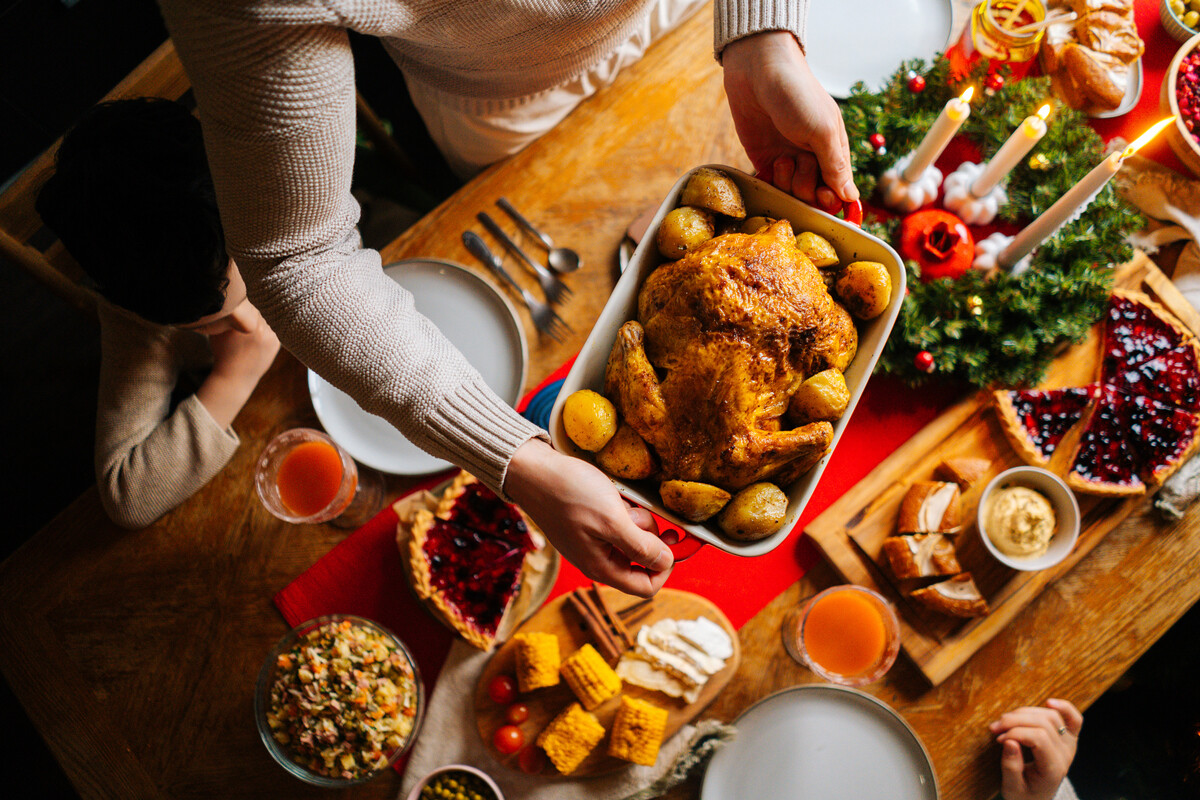
Christmas dinner
dikushin/Getty ImagesUnlike Catholics, the Christmas Fast precedes this holiday for the Orthodox Christians. It begins on November 28th and ends on January 6th. That’s why church-going and devout people celebrate New Year’s without food forbidden in Lent, and abstain from alcohol. Christmas Eve in Russia is called ‘Sochelnik.’ Traditionally, the entire family gathers at the table after the evening service at church.
It’s customary to fast before the first star appears in the sky, after which dinner begins. As per tradition, the first dish is a sweet rice (or millet) porridge with honey, called ‘kutya’. Then, the main dishes follow – such as a roast piglet or goose.
Another tradition is that 12 dishes should be present on the Sochelnik table, in honor of the 12 apostles of Jesus. So, people cooked a lot of food for the feast – blinis, pies, and sweet treats. But today, few people follow the 12 dishes rule, and often they resort to just a roast goose or duck and two or three salads, appetizers, and garnishes.
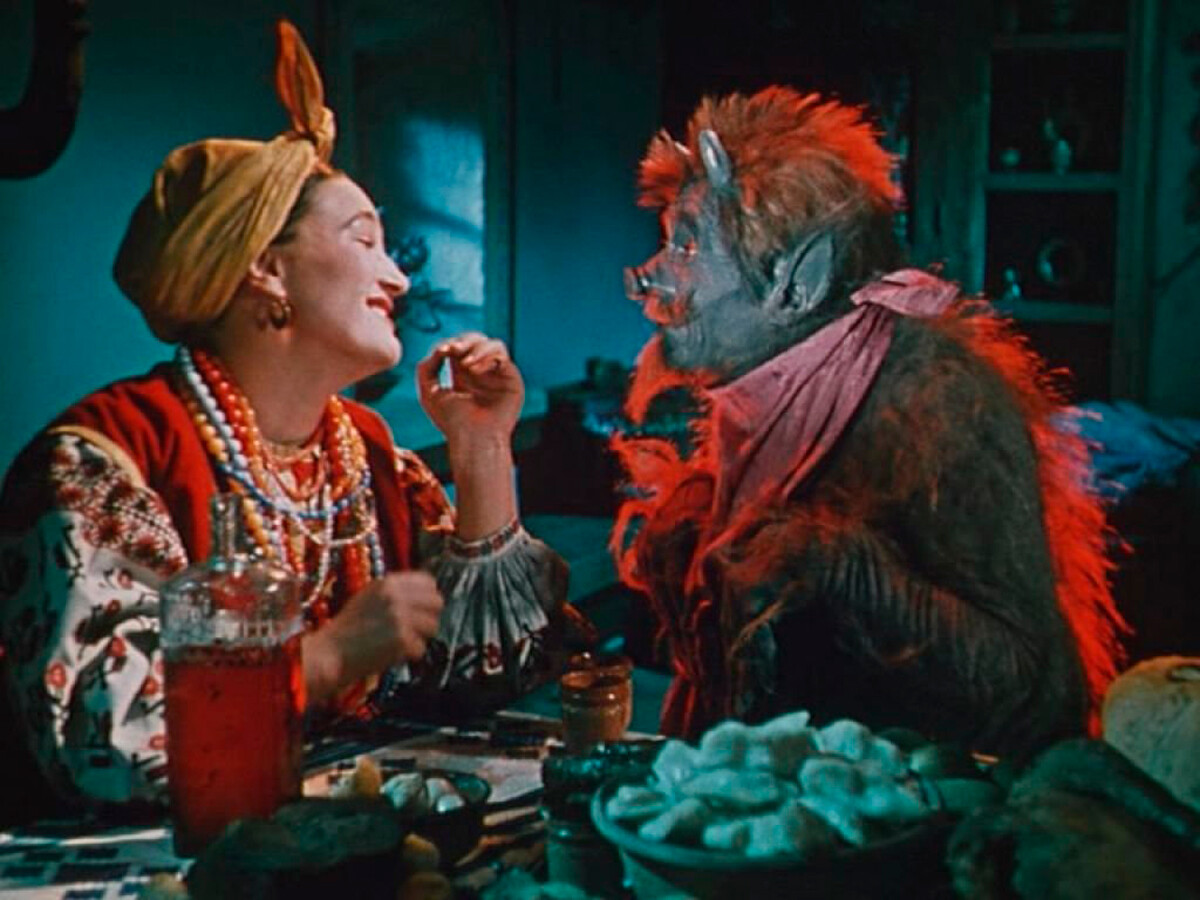
A still from 'The Night Before Christmas' movie
Aleksandr Rou/Gorky film studio, 1961According to Russian tradition, the time from the night before Christmas and until Baptism Eve (January 19th) is called Svyatki. Having broken their fast in preparation for Christmas, people now begin to celebrate and make merry. Kolyadovaniya was customary – people dressed-up and went from one neighbor to another, dancing and singing, and collecting treats.
Apart from that, Svyatki is a time for fortune-telling. Mostly young girls gathered in the evening and tried to learn about their future; for example, who would be their betrothed and what would the harvest be like that year. They would read candles, shadows, mirrors, roosters, etc – there were plenty of different methods. The Church didn’t approve of this, since fortune-telling was thought to be cavorting with evil forces. It was believed that during Svyatki these nefarious forces were especially active and one should be extra careful.
Nikolai Gogol in his short story “Christmas Eve” vividly describes Svyatki.
Read more about Svyatki in our article.
Dear readers,
Our website and social media accounts are under threat of being restricted or banned, due to the current circumstances. So, to keep up with our latest content, simply do the following:
If using any of Russia Beyond's content, partly or in full, always provide an active hyperlink to the original material.
Subscribe
to our newsletter!
Get the week's best stories straight to your inbox